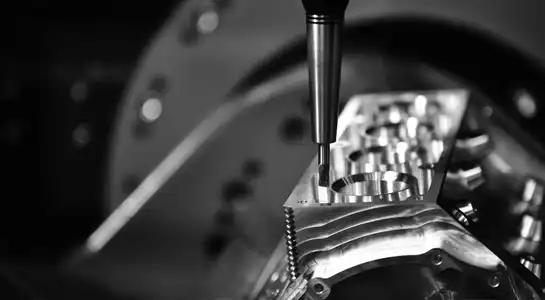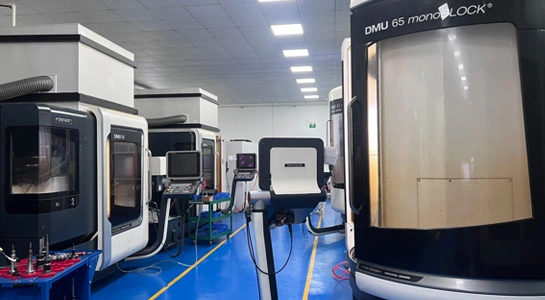It is very vital to choose the right plastic for your manufacturing process if you want to make sure that your products are high quality, operate well, and are cheap. The choice of plastic injection molding materials can significantly impact the final product's durability, appearance, and functionality. Think on the product's intended use, the environment, its mechanical properties, and the requirements for production in order to make an informed choice. By carefully looking at all of these factors and talking to experienced manufacturers like BOEN Prototype, you can find the best plastic material for your purposes and make your manufacturing process more efficient.
Understanding Plastic Properties and Their Impact on Manufacturing
Key Mechanical Properties of Plastics
It's important to know the mechanical qualities of the plastic injection molding materials you choose. These traits decide how the material will respond during the manufacturing process and in the end product. Some critical mechanical properties to consider include:
- Tensile strength: The material's resistance to breaking under tension
- Flexural modulus: The material's ability to resist bending
- Impact strength: The material's ability to absorb shock without fracturing
- Heat deflection temperature: The temperature at which the material begins to deform under load
- Melt flow index: The material's flow characteristics during injection molding
Each of these properties plays a vital role in determining the suitability of a plastic for your specific application. For example, if your product needs to withstand high temperatures, you'll want to choose a material with a high heat deflection temperature.
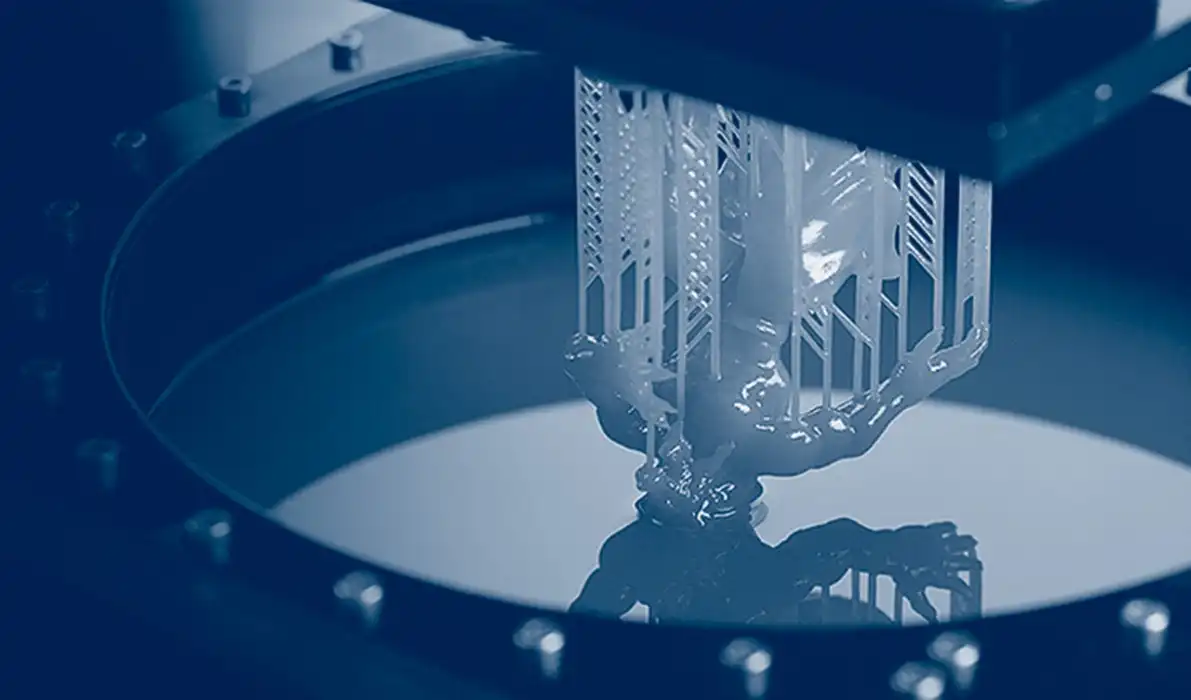
Chemical Resistance and Environmental Factors
Another crucial aspect to consider when selecting plastic injection molding materials is their chemical resistance and how they react to environmental factors. Different plastics have varying levels of resistance to chemicals, UV radiation, and moisture. Consider the following:
- Chemical compatibility: Ensure the chosen plastic can withstand exposure to any chemicals it may encounter during use
- UV stability: For outdoor applications, select materials with good UV resistance to prevent degradation
- Moisture absorption: Some plastics absorb moisture, which can affect their dimensional stability and mechanical properties
- Temperature range: Choose a material that can maintain its properties within the expected operating temperature range
By carefully evaluating these factors, you can select a plastic that will perform well in its intended environment and maintain its properties throughout the product's lifecycle.
Processing Considerations for Different Plastics
The processing characteristics of plastic injection molding materials can significantly impact manufacturing efficiency and product quality. Consider the following aspects when selecting a plastic:
- Mold shrinkage: Different plastics shrink at varying rates, affecting dimensional accuracy
- Cycle time: Some materials require longer cooling times, which can impact production speed
- Mold temperature: Certain plastics require specific mold temperatures for optimal processing
- Viscosity: The material's flow behavior affects how easily it fills complex mold cavities
- Drying requirements: Some plastics need to be dried before processing to prevent defects
Understanding these processing considerations will help you choose a plastic that not only meets your product requirements but also aligns with your manufacturing capabilities and efficiency goals.
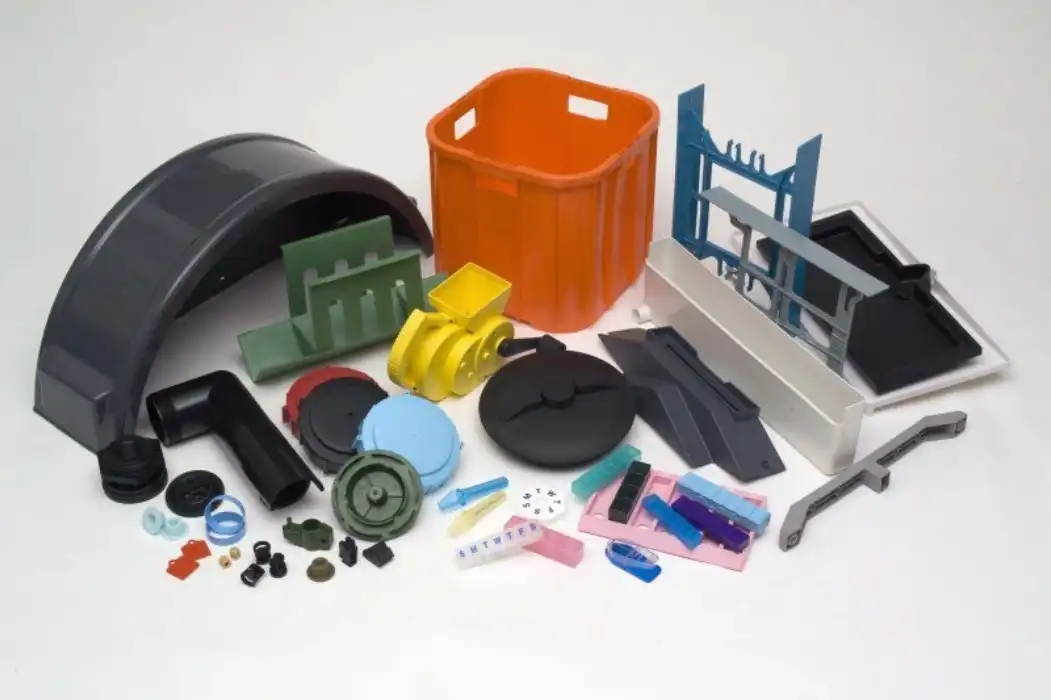
Common Types of Plastic Injection Molding Materials and Their Applications
Thermoplastics vs. Thermosets
Plastic injection molding materials can be broadly categorized into two main types: thermoplastics and thermosets. Understanding the differences between these categories is crucial for selecting the right material for your manufacturing process:
Thermoplastics:
- Can be melted and reshaped multiple times
- Offer greater flexibility in design and manufacturing
- Generally easier to recycle
- Examples include ABS, polypropylene, and nylon
Thermosets:
- Undergo a chemical change when heated, becoming permanently set
- Cannot be melted and reshaped after curing
- Often offer superior heat resistance and chemical stability
- Examples include epoxy, silicone, and polyurethane
The choice between thermoplastics and thermosets depends on your specific application requirements, such as heat resistance, chemical resistance, and recyclability needs.
Popular Thermoplastics and Their Characteristics
Among the various plastic injection molding materials, certain thermoplastics are particularly popular due to their versatility and favorable properties. Here are some commonly used thermoplastics and their key characteristics:
- ABS (Acrylonitrile Butadiene Styrene): High impact resistance, good dimensional stability, and excellent surface finish
- Polypropylene (PP): Low density, high chemical resistance, and good fatigue resistance
- Polyethylene (PE): Excellent chemical resistance, low friction, and good electrical insulation properties
- Nylon (Polyamide): High strength-to-weight ratio, good wear resistance, and self-lubricating properties
- Polycarbonate (PC): High impact strength, excellent transparency, and good heat resistance
Each of these materials has unique properties that make them suitable for specific applications. For example, ABS is often used in automotive interiors and consumer electronics, while polypropylene is commonly found in packaging and automotive components.
Specialty and High-Performance Plastics
For demanding applications that require exceptional performance, specialty and high-performance plastics offer advanced properties. These materials often come at a higher cost but provide superior characteristics for specific needs:
- PEEK (Polyether Ether Ketone): Extremely high heat resistance, excellent chemical resistance, and high strength
- PPS (Polyphenylene Sulfide): High dimensional stability, excellent chemical resistance, and inherent flame retardancy
- PTFE (Polytetrafluoroethylene): Extremely low friction coefficient, excellent chemical resistance, and high temperature resistance
- PEI (Polyetherimide): High heat resistance, good dimensional stability, and inherent flame retardancy
These high-performance plastics are often used in aerospace, automotive, and medical applications where standard thermoplastics may not meet the stringent requirements. When selecting specialty plastics, it's crucial to work closely with experienced manufacturers to ensure proper material selection and processing.
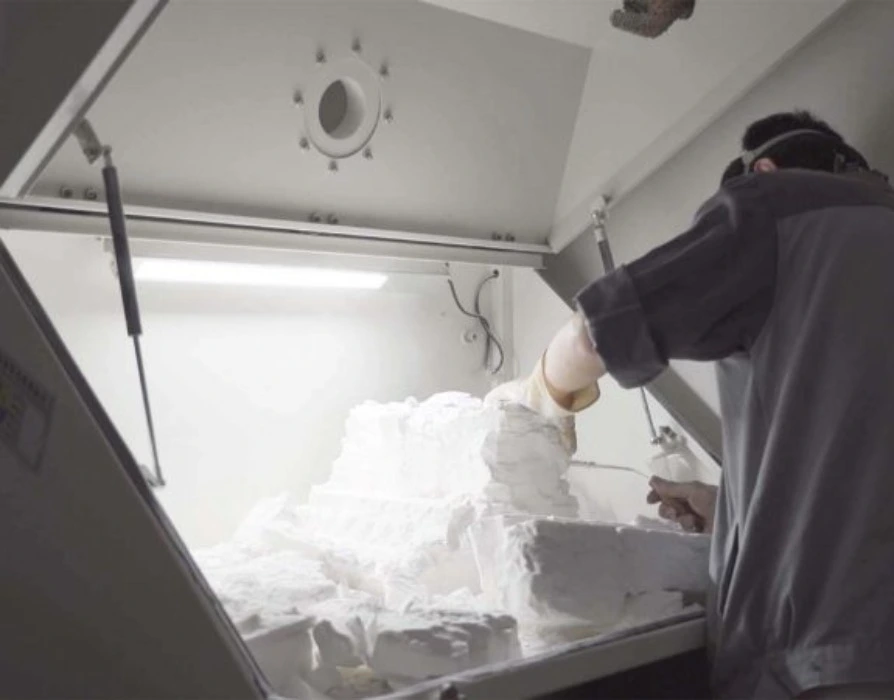
Optimizing Material Selection for Your Specific Manufacturing Needs
Balancing Performance and Cost
When selecting plastic injection molding materials, finding the right balance between performance and cost is crucial. While high-performance plastics offer superior properties, they often come with a higher price tag. Consider the following strategies to optimize your material selection:
- Prioritize essential properties: Identify the critical performance requirements for your product and focus on materials that excel in those areas
- Consider material blends: Custom blends or alloys can sometimes offer a cost-effective way to achieve desired properties
- Evaluate long-term costs: Factor in the material's durability and potential maintenance costs over the product's lifecycle
- Explore alternative materials: Sometimes, less expensive materials with similar properties can be suitable alternatives
By carefully analyzing your product's requirements and exploring various options, you can find a material that offers the right balance of performance and cost-effectiveness for your manufacturing process.
Collaborating with Material Suppliers and Manufacturers
Selecting the right plastic injection molding materials often requires expertise beyond what's available in-house. Collaborating with material suppliers and experienced manufacturers like BOEN Prototype can provide valuable insights and support:
- Material expertise: Suppliers and manufacturers have in-depth knowledge of material properties and processing characteristics
- Application experience: They can share insights from similar projects and recommend suitable materials
- Testing and validation: Many suppliers offer material testing services to verify performance in your specific application
- Custom solutions: Some suppliers can develop custom formulations to meet unique requirements
Engaging with these experts early in the design process can help you make informed decisions and avoid potential issues down the line.
Considering Sustainability and Regulatory Compliance
As environmental concerns and regulations become increasingly important, considering sustainability and compliance when selecting plastic injection molding materials is crucial:
- Recyclability: Choose materials that align with your sustainability goals and can be easily recycled
- Bio-based alternatives: Explore bio-based or biodegradable plastics for environmentally sensitive applications
- Regulatory compliance: Ensure selected materials meet relevant industry standards and regulations (e.g., FDA, RoHS, REACH)
- Carbon footprint: Consider the environmental impact of material production and transportation
By factoring in these aspects, you can select materials that not only meet your performance requirements but also align with your company's sustainability initiatives and comply with relevant regulations.
FAQ
What factors should I consider when choosing plastic injection molding materials?
You should evaluate mechanical properties (e.g., tensile strength, heat resistance), environmental exposure (e.g., UV, chemicals, moisture), processing requirements (e.g., mold shrinkage, cycle time), and cost. These will determine performance, manufacturability, and long-term durability.
What is the difference between thermoplastics and thermosets in injection molding?
Thermoplastics can be melted and reshaped multiple times, making them versatile and recyclable. Thermosets cure permanently after heating and cannot be remelted. Thermosets are ideal for high-heat or chemically resistant applications.
Which thermoplastics are commonly used in injection molding?
Popular thermoplastics include ABS (impact-resistant), polypropylene (chemical-resistant), polyethylene (low friction), nylon (wear-resistant), and polycarbonate (high impact strength and clarity). Each suits specific applications based on required properties.
How can I ensure my chosen plastic meets sustainability and regulatory standards?
Choose recyclable or bio-based materials when possible. Make sure the plastic complies with industry standards like RoHS, REACH, or FDA. Work with suppliers who provide documentation and testing to confirm compliance and environmental impact.
Conclusion
Choosing the alter plastic for your creating handle is a outstandingly basic choice that will have an influence on the quality, execution, and cost-effectiveness of your items. You can make good choices if you know how materials work, consider about how they need to be processed, and look at how they influence the environment. Working with specialists and finding a balance between performance and cost can help you choose the best materials. To make sure the materials you choose meet industry standards and environmental aims, don't forget to think about sustainability and following the rules. You can choose the best plastic injection molding materials for your manufacturing needs if you think about it carefully and get help from an expert.
Select the Best Plastic Injection Molding Materials Fast | BOEN
At BOEN Prototype, we specialize in helping you select the best plastic injection molding materials for your manufacturing process. We are different from other companies in the industry since we are experts at making prototypes and small runs of plastic and metal parts. We offer high-quality prototyping, fast tooling, and low-volume fabricating administrations to offer assistance you make your item in a wide run of areas. Please email us at contact@boenrapid.com if you want to know more about our services and how we can assist you choose the best plastic injection molding materials. Let BOEN Prototype help you make the best products possible.
Smith, J.D. (2021). Advanced Plastic Materials for Injection Molding: Properties and Applications. Journal of Polymer Engineering, 45(3), 287-301.
Johnson, A.R., & Brown, T.L. (2020). Sustainable Practices in Plastic Injection Molding: Material Selection and Process Optimization. International Journal of Sustainable Manufacturing, 12(2), 156-172.
Chen, X., et al. (2022). Comparative Analysis of High-Performance Thermoplastics for Aerospace Applications. Aerospace Materials and Technology, 18(4), 423-439.
Thompson, R.C. (2019). Material Selection Guidelines for Medical Device Manufacturing. Medical Plastics and Biomaterials, 27(1), 45-58.
Garcia, M.L., & Perez, F.J. (2021). Advancements in Bio-based Plastics for Injection Molding: Properties and Environmental Impact. Green Chemistry and Sustainable Technology, 9(3), 312-328.
Wilson, E.K. (2020). Optimizing Plastic Material Selection for Automotive Components: A Comprehensive Approach. Automotive Engineering International, 33(2), 178-195.






